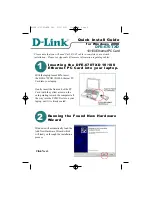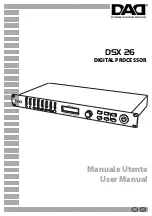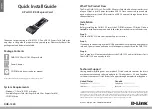
22
Specification Update
BJ22.
MOV To/From Debug Registers Causes Debug Exception
Problem:
When in V86 mode, if a MOV instruction is executed to/from a debug registers, a
general-protection exception (#GP) should be generated. However, in the case when
the general detect enable flag (GD) bit is set, the observed behavior is that a debug
exception (#DB) is generated instead.
Implication:
With debug-register protection enabled (i.e., the GD bit set), when attempting to
execute a MOV on debug registers in V86 mode, a debug exception will be generated
instead of the expected general-protection fault.
Workaround:
In general, operating systems do not set the GD bit when they are in V86 mode. The
GD bit is generally set and used by debuggers. The debug exception handler should
check that the exception did not occur in V86 mode before continuing. If the exception
did occur in V86 mode, the exception may be directed to the general-protection
exception handler.
Status:
For the steppings affected, see the Summary Tables of Changes.
BJ23.
PEBS Record not Updated when in Probe Mode
Problem:
When a performance monitoring counter is configured for PEBS (Precise Event Based
Sampling), overflows of the counter can result in storage of a PEBS record in the PEBS
buffer. Due to this erratum, if the overflow occurs during probe mode, it may be
ignored and a new PEBS record may not be added to the PEBS buffer.
Implication:
Due to this erratum, the PEBS buffer may not be updated by overflows that occur
during probe mode.
Workaround:
None identified
Status:
For the steppings affected, see the Summary Tables of Changes.
BJ24.
Performance Monitoring Event FP_MMX_TRANS_TO_MMX May Not
Count Some Transitions
Problem:
Performance Monitor Event FP_MMX_TRANS_TO_MMX (Event CCH, Umask 01H) counts
transitions from x87 Floating Point (FP) to MMX™ instructions. Due to this erratum, if
only a small number of MMX instructions (including EMMS) are executed immediately
after the last FP instruction, a FP to MMX transition may not be counted.
Implication:
The count value for Performance Monitoring Event FP_MMX_TRANS_TO_MMX may be
lower than expected. The degree of undercounting is dependent on the occurrences of
the erratum condition while the counter is active. Intel has not observed this erratum
with any commercially available software.
Workaround:
None identified
Status:
For the steppings affected, see the Summary Tables of Changes.
BJ25.
REP MOVS/STOS Executing with Fast Strings Enabled and Crossing
Page Boundaries with Inconsistent Memory Types may use an
Incorrect Data Size or Lead to Memory-Ordering Violations
Problem:
Under certain conditions as described in the Software Developers Manual section “Out-
of-Order Stores For String Operations in Pentium 4, Intel Xeon, and P6 Family
Processors” the processor performs REP MOVS or REP STOS as fast strings. Due to this
erratum fast string REP MOVS/REP STOS instructions that cross page boundaries from
WB/WC memory types to UC/WP/WT memory types, may start using an incorrect data
size or may observe memory ordering violations.
Implication:
Upon crossing the page boundary the following may occur, dependent on the new page
memory type:
















































